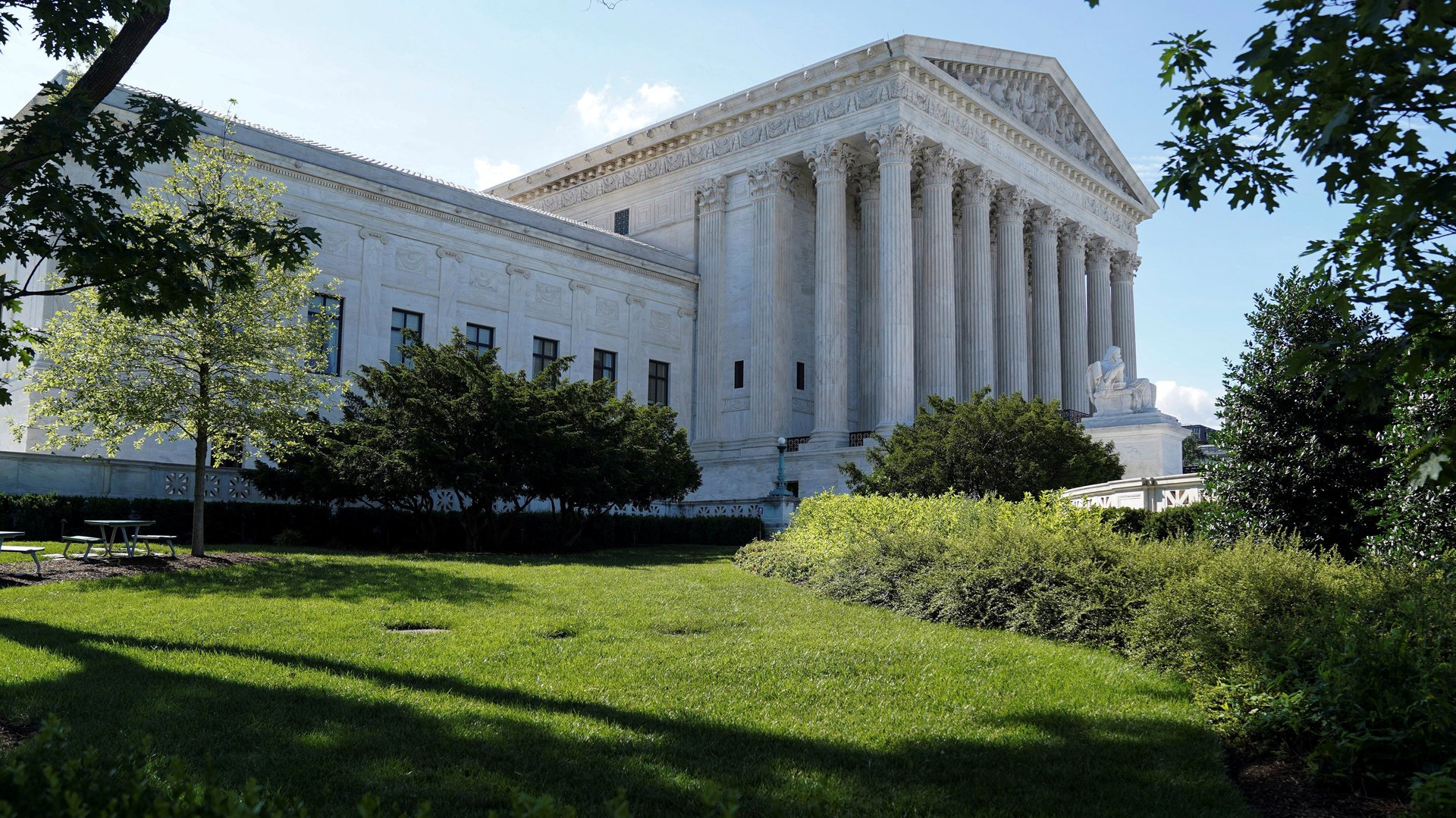Anti-immigrant hardliners may have just torpedoed Raymond Kethledge’s Supreme Court chances
Selecting a Supreme Court justice has always been a political process, one riven with behind-the-scenes maneuvering by donors, political parties, and hidden special interests. Donald Trump’s reality show approach to replacing Anthony Kennedy has exacerbated the situation, and the scrambling ahead of tonight’s 9pm announcement has been intense.


Selecting a Supreme Court justice has always been a political process, one riven with behind-the-scenes maneuvering by donors, political parties, and hidden special interests. Donald Trump’s reality show approach to replacing Anthony Kennedy has exacerbated the situation, and the scrambling ahead of tonight’s 9pm announcement has been intense.
Over the weekend, two of the four top candidates, Raymond Kethledge and Thomas Hardiman, were targeted for attack by far-right news outlets and pundits known for espousing racist, white supremacist views, because of their rulings on immigrants. Kethledge in particular was singled out, and it looks now that it may have cost him the nomination.
The Michigan native has ruled on 120 immigration-related cases during his decade on the Sixth Circuit court of appeals, and decided in favor of the government’s immigration position (and therefore against the immigrant) in 97% of the cases, the National Review notes. “Interpreting and applying immigration laws faithfully sometimes means upholding the removal of immigrants despite compelling or even heartwrenching personal stories,” the article says, approvingly.
That, however, isn’t hardline enough. Kethledge and Hardiman are “open borders zealots,” columnist Ann Coulter tweeted on July 4, and then spent the days afterward tweeting insults about 51-year-old Kethledge, who was originally appointed to the federal court system by George W. Bush.
Kethledge “has a record that shows weakness on immigration,” Breitbart wrote on July 6. Among the cases it uses as an example is, confusingly, one in which Kethledge dissents from the other judges, and rules against a man from India. His ruling had more to do with procedure that employers have to go through to get visas for foreigners to work in the US, and he concludes:
In summary, even conceding, arguendo, that Patel comes within the “zone of interest” regulated by the statutes and regulations set out above, I nevertheless would not concede that he has established standing, either constitutional or prudential, or that he has stated a claim on which relief may be granted. And even if Patel could survive a No. 12-1962 Patel v. United States Citizenship and Immigration Servs. Page 20 motion to dismiss, there is plainly no merit to his claim as a matter of law. I would, therefore, affirm the district court’s judgment, and I respectfully dissent from the majority’s decision to do otherwise.
Both Breitbart and Coulter both expressed concern that Kethledge wrote “there is no basis in the text of the statute—none—to conclude that Congress was completely indifferent to the interests of the ‘qualified immigrants’ themselves.” Kethledge goes on to write that “it is the alien, not the employer, who is entitled to an employment visa; and that makes unavoidable the conclusion that the alien’s interests are among those ‘protected or regulated by the statute.’ “
Ultimately, what Breitbart and Coulter seem to be arguing against is due process for undocumented immigrants, something that Trump has railed against, but that the Supreme Court established long ago. While the opinion of a radical columnist and a far-right website might not have mattered in other presidencies, Trump is often influenced in unconventional ways.
After Breitbart, other right-wing blogs piled on, wondering if Kethledge was “soft on immigration,” and criticism of his immigration rulings was widely circulated on Reddit. Now Kethledge’s prospects seem grim: Breitbart, the New York Times, and the Detroit Free Press are all reporting he is no longer a contender, and he is running a distant fourth on PredictIt, the political betting site, just ahead of Merrick Garland, the Barack Obama nominee who the Senate refused to consider.
The normally leaky White House press office has been remarkably silent on the issue, and the only thing left on Trump’s agenda before tonight’s announcement is lunch with the vice president, so there’s little change for reporters to try to jostle any hints out of him. That means that, just as Trump wants, his prime time “reveal” will be the only way to find out who the nominee is.